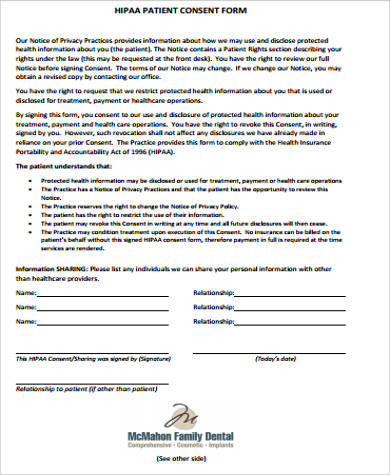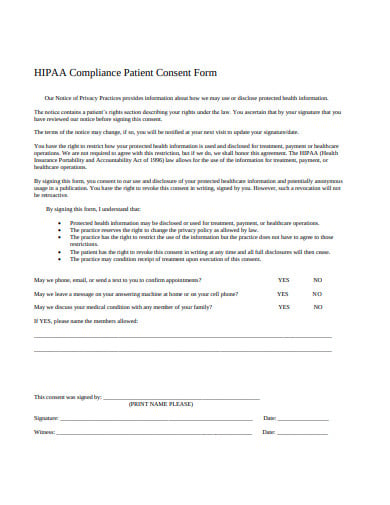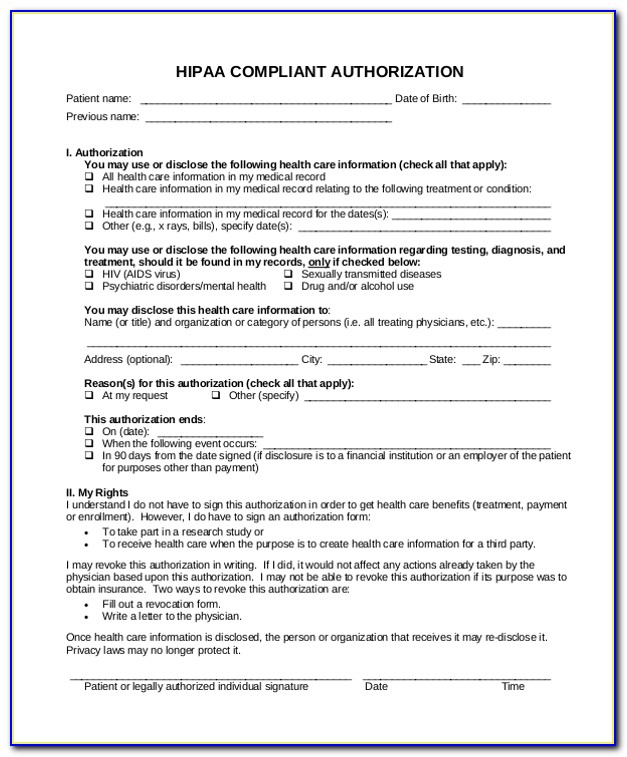

Because of this, online forms have a wide range of potential features that they can employ.

With a HIPAA compliant form builder, you ensure that all of your forms are HIPAA compliant and optimized for collecting patient information.ĭynamic online forms offer more complexity than traditional, paper forms. To follow these guidelines, you’ll need to make sure that all of your different forms adhere to these regulations. Make sure this authentication can be verified in the future. Offer patients a consent form to identify which channels a doctor can use to share ePHI with them.
Collect - and keep - a record of patient consent. Make sure data is safeguarded properly when in transit, and use adequate encryption so that it can’t be accessed without proper authorization. Data encryption is an essential part of securing data, especially when it’s being collected and transferred online. 
Since this can compromise the privacy and personal information of a user, you must ensure that no health-related information is shared in this manner, and that ePHI is only accessible via approved channels. Many form softwares send automated email notifications to account administrators and users.Make sure your provider signs a Business Associate Agreement, binding them to follow regulations for the collection, storage, and use of ePHI. Your web-form provider must store your patients’ data securely.To achieve this, there are a few requirements that your online forms have to meet: To protect the individuals you are collecting data from, online HIPAA forms have to adhere to two main regulations: the HIPAA Privacy Rule, which establishes standards for the protection of health information and determines what information falls under this protection, and the HIPAA Security Rule, which establishes the standards that must be followed to adequately protect, store, and manage electronic protected health information. While HIPAA compliant forms offer a wide range of benefits, due to the nature of the information being collected, they need to adhere to a number of standards that safeguard the privacy of your patients.
 Lead to happier, more satisfied patients. Can be easily converted into readable reports and visualizations. Streamline workflows by automating data collection and transfer. Providers have more time to prepare treatment and care. Eliminate paperwork (including filing, printing, and shredding). Online HIPAA compliant forms offer your practice a number of benefits: With everything done online, your team saves valuable hours that can be put towards managing your practice and perfecting the patient experience. Digital patient forms modernize your practice, allowing you to automate repetitive tasks and save time with collecting, managing, and transferring patient data. Managing patient information using paper and filing cabinets is outdated and inefficient. To make sure your forms are up to the HIPAA standards and properly protect patient information, we’ll explain why HIPAA compliant forms are so important, requirements you need to follow, and outline the top features to look for. For online forms, the most important consideration is that you’re following the HIPAA Security Rule. They are essential for businesses and practices that operate in an industry that collects, stores, and manages protected health information (PHI) of their customers or patients. HIPAA compliant online forms are simply digital forms that are HIPAA compliant. To automate and simplify the collection, storage, and management of electronic personal health information (PHI), it’s essential to use a HIPAA compliant form solution. Having accurate, up-to-date patient information is essential for managing an effective practice and keeping your patients satisfied.
Lead to happier, more satisfied patients. Can be easily converted into readable reports and visualizations. Streamline workflows by automating data collection and transfer. Providers have more time to prepare treatment and care. Eliminate paperwork (including filing, printing, and shredding). Online HIPAA compliant forms offer your practice a number of benefits: With everything done online, your team saves valuable hours that can be put towards managing your practice and perfecting the patient experience. Digital patient forms modernize your practice, allowing you to automate repetitive tasks and save time with collecting, managing, and transferring patient data. Managing patient information using paper and filing cabinets is outdated and inefficient. To make sure your forms are up to the HIPAA standards and properly protect patient information, we’ll explain why HIPAA compliant forms are so important, requirements you need to follow, and outline the top features to look for. For online forms, the most important consideration is that you’re following the HIPAA Security Rule. They are essential for businesses and practices that operate in an industry that collects, stores, and manages protected health information (PHI) of their customers or patients. HIPAA compliant online forms are simply digital forms that are HIPAA compliant. To automate and simplify the collection, storage, and management of electronic personal health information (PHI), it’s essential to use a HIPAA compliant form solution. Having accurate, up-to-date patient information is essential for managing an effective practice and keeping your patients satisfied.








 0 kommentar(er)
0 kommentar(er)
